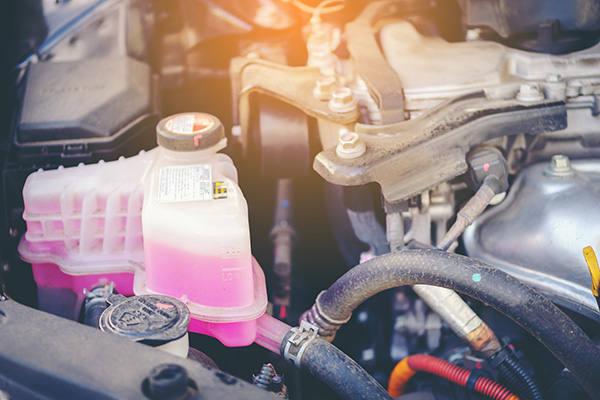
Ever wondered why your technician emphasizes the importance of a fluid exchange service during your routine car maintenance? While it might seem like just another item on the list, fluid exchange is crucial for keeping your vehicle running efficiently. But what exactly is a fluid exchange service, and why does your car need it?
The Fluid Exchange Service
A fluid exchange service involves draining and replacing the various fluids that keep your car's systems operating effectively. These fluids include engine oil, transmission fluid, brake fluid, coolant, and power steering fluid. Each fluid plays a critical role in your vehicle's performance, ensuring everything from smooth gear shifts to efficient cooling and braking.
Why Is Fluid Exchange Important?
Regular fluid exchange is vital for several reasons. Over time, the fluids in your car can break down, become contaminated with debris, or lose their effectiveness. This can lead to decreased performance, increased wear and tear, and potentially expensive repairs. Let's look at the main reasons why fluid exchange is essential for your car.
Maintaining Optimal Performance
Fluids like engine oil and transmission fluid are designed to lubricate and protect your car's moving parts. As these fluids age, they can lose their lubricating properties, leading to increased friction and wear. Regularly exchanging these fluids ensures that your engine and transmission continue to operate smoothly and efficiently.
Preventing Overheating
Coolant, or antifreeze, is critical for regulating your car's temperature. Over time, coolant can degrade and lose its ability to absorb heat effectively, leading to overheating. A fluid exchange service replaces old coolant with fresh fluid, preventing overheating and protecting your engine from damage.
Ensuring Safe Braking
Brake fluid is hygroscopic, meaning it absorbs moisture over time. This can lead to a reduction in braking efficiency and potentially cause brake failure. Regular brake fluid exchanges remove contaminated fluid and replace it with fresh fluid, ensuring your brakes remain responsive and safe.
Types of Fluids That Need Regular Exchange
Let's take a closer look at the different types of fluids that need regular exchange and their specific roles in your vehicle.
Engine Oil
Engine oil lubricates the engine's moving parts, reducing friction and wear. It also helps cool the engine and clean away contaminants. Over time, engine oil can become dirty and lose its effectiveness, necessitating regular oil changes.
Transmission Fluid
Transmission fluid lubricates the gears in your transmission and helps cool the transmission system. Regular fluid exchanges are crucial to prevent transmission issues and ensure smooth gear shifts.
Brake Fluid
Brake fluid transfers the force from your brake pedal to the brake pads, enabling your car to stop. Over time, brake fluid can absorb moisture and become contaminated, reducing its effectiveness and potentially compromising your braking system.
Coolant/Antifreeze
Coolant regulates your engine's temperature, preventing it from overheating. Regular coolant exchanges are necessary to maintain effective temperature control and protect your engine from damage.
Power Steering Fluid
Power steering fluid helps make steering easier and more responsive. Over time, this fluid can break down or become contaminated, affecting your ability to steer smoothly.
How Often Should You Perform a Fluid Exchange?
The frequency of fluid exchanges can vary depending on your vehicle's make and model, as well as your driving habits. However, there are some general guidelines you can follow:
- Engine Oil: Every 5,000 to 8,000 miles, or as recommended by your vehicle's manufacturer.
- Transmission Fluid: Every 30,000 to 60,000 miles, depending on your driving conditions.
- Brake Fluid: Every 2 years or 20,000 to 30,000 miles.
- Coolant: Every 30,000 miles or as recommended by your vehicle's manufacturer.
- Power Steering Fluid: Typically every 75,000 to 100,000 miles.
Always refer to your vehicle's owner's manual for specific recommendations and consult with your mechanic to determine the best maintenance schedule for your car.
Benefits of Regular Fluid Exchange Service
- Enhanced Vehicle Performance: Fresh fluids ensure that all systems operate efficiently, improving overall vehicle performance.
- Extended Vehicle Lifespan: Regular maintenance can significantly extend the lifespan of your car by reducing wear and preventing major issues.
- Improved Safety: Properly maintained fluids ensure that critical systems like brakes and steering function safely and effectively.
- Cost Savings: Preventative maintenance, including fluid exchanges, can save you money in the long run by avoiding costly repairs and breakdowns.
Keep your car running smoothly with a professional fluid exchange service. Schedule your appointment at Foreign Auto Services today!